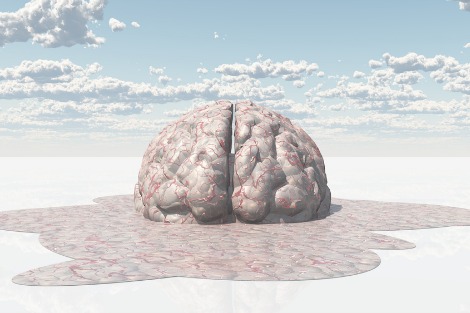 It's a warm evening and I'm in an inner city beer garden with friends. There is talking and laughter. Someone offers to go to the bar, starts taking orders from the group. One asks for rum and coke.
It's a warm evening and I'm in an inner city beer garden with friends. There is talking and laughter. Someone offers to go to the bar, starts taking orders from the group. One asks for rum and coke.
'Ugh,' shudders an old friend sitting next to me. 'I hate rum.'
The conversation bubbles up around us, but I follow the undercurrent of his mood.
'Why?' I ask.
'My mum drank rum. She was an alcoholic.'
Laughter rattles through the softening air; someone's cracked a joke at the other end of the table. Suddenly, I feel very light.
I put a hand on his shoulder.
'Really?' I ask, smiling. 'So was mine.'
He looks at me. A split second of relieved recognition passes between us, each one thinking, Maybe I'm not a solitary, incomprehensible person. Maybe someone gets this.
When my turn comes, I order a gin and tonic. Everyone knows I don't drink beer. I tell them it's because I don't like it, not because it's what my father used to drink before, during, and after he beat my mother.
How do you tell people that in the course of normal conversation? Despite my friend's brave example, I still haven't found a way. So I lie.
What I can tell you, though, and with certainty, is that mental illness begets mental illness. One glance at the reportage on the Royal Commission into child sex abuse proves that. There are a number of events and campaigns in Australia that aim to raise awareness of mental illness, probably the most notable of which was celebrated last month during 'Movember', a campaign that is all about 'having fun, and doing it for a serious cause'.
Raising public awareness is essential, but if we are to bring mental health out of the closet in a meaningful way, we'll have to start talking more honestly. That means dropping the vernacular of the web's reprehensible pop-psychology pieces and positive thinking propaganda, going beyond fun/serious causes, and using our own hard-won, unedited and ultimately ugly words to tell the truth.
If three million Australians live just with depression or anxiety, all of us must be affected by mental illness at some time, in some way. Still the stigma around issues as common as addiction and post-natal depression and domestic violence curbs our willingness to talk honestly either as sufferers, or people who are close to them.
We won't discuss loved ones' mental health because to do so feels like a betrayal. But we suffer, too. The ill person has us to lean on, but unless we talk, we suffer alone.
We won't talk about our own mental health because, like the great and, oh, occasionally suicidal Stephen Fry, we're too busy asking, 'What the fuck right do I have to be lonely, unhappy, or forlorn?'
The answer to that particular question is simple.
Ill heath is not a right. Suffering is not indulgence. If you're telling yourself that, shut the hell up.
Then, start talking the truth — and asking for it.
 Georgina Laidlaw has more than ten years' experience writing and editing, and has a particular interest in the media, persuasion, and communications culture.
Georgina Laidlaw has more than ten years' experience writing and editing, and has a particular interest in the media, persuasion, and communications culture.
Melting brain image from Shutterstock